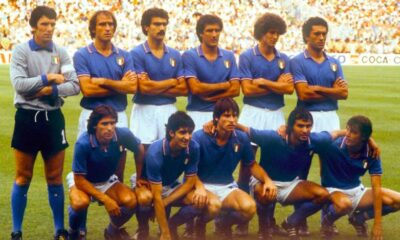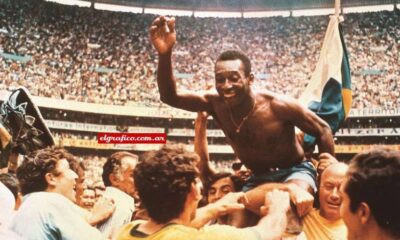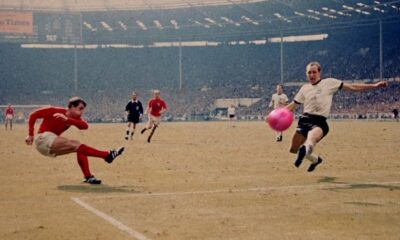Football
Anniversary of the birth of the Vršovice longboat! Czechoslovakia shocked Europe and took gold from Yugoslavia
20. june is a date that has gone down in the history of Czechoslovak football. Czechoslovakia defeated Germany in the final in Yugoslavia and, thanks to a memorable penalty kick by Antonín Panenka, brought home European Championship gold.

20. june is a date that has gone down in the history of Czechoslovak football. Czechoslovakia defeated Germany in the final in Yugoslavia and, thanks to a memorable penalty kick by Antonín Panenka, brought home European Championship gold.
Where are those times? It’s been 46 years since that memorable moment for Czechoslovak football. But that first European Championship victory had its cracks. Let us recall the amazing journey of the Czechoslovak football team to Belgrade gold.
The Czechoslovak team did not have an easy path in the qualification for the European Championship
From 1974 to 1976, qualification for the European Championship took place. The draw of the groups of four gave us tough opponents from England and Portugal, supplemented by a midget from Cyprus. The draw was all the more merciless because only the winner of the group had a chance to get to the final tournament held in the then Yugoslavia.
The entry into the qualification was not exactly a success for our selection, as we lost 0:3 to the home team in London. Since then, however, we have not lost a single game and, in particular, the home win over Portugal by 5:0 put us on course to top the group by one point ahead of second-placed England.
The group winners faced off in a home/away double-header to qualify for the final tournament. Our national team faced a selection from the then Soviet Union and after a 2: 0 home win and a draw in Kiev, we progressed to play in Yugoslavia. It was a bitter pill for the Soviet team as for the first time in their history they did not qualify for the final tournament.
In the semi-finals of the final tournament in Yugoslavia we advanced over the Dutch team only in overtime
The final tournament, played at stadiums in Zagreb and Belgrade, had the format of a semi-final battle and subsequent final held in Belgrade. In the semi-finals we faced the star-studded Netherlands selection and few expected to advance to the final.
However, the Czechoslovakian team surprised and overwhelmed the Dutch team in the semi-final duel. After a goal by Ondrus, he scored an own goal with just 13 minutes left in regulation time and the match went into extra time.
However, the Czechoslovakian team was the one to rejoice when Nehoda and Veselý scored two goals in the final ten minutes. The Czechoslovaks thus advanced to the final in Belgrade, where they faced the tournament favourites from West Germany.
The Belgrade final against Germany was decided by a memorable penalty kick by Antonín Panenka
The final started incredibly for our team. After twenty-five minutes we were leading the German team 2:0 after goals by Jan Švehlik and Karol Dobias. The German coaches just shook their heads in disbelief at the heart of their eastern neighbours.
But football fate had not yet written its full story that evening. In the 28th minute, the Germans reduced the gap to a single goal. Only to send the final match into extra time with one minute to go.
There was no goal and the match went to a penalty shootout. In the fourth series, Uli Hoeneß sent the ball over the goal and Antonín Panenka only needed to convert the penalty kick for his teammates to celebrate the first ever European Champions trophy.
The spectacular execution of his penalty kick resonates through world football to this day. His long kick went around the world, and Sepp Maier, the then mainstay of the German team, could not believe his eyes.
The country from the heart of Europe shocked the old continent and brought home gold medals for the first time in the history of Czechoslovak football. Hopefully, today’s generation of fans will soon see a similar historic moment.
Source:: Wikipedia, Youtube










